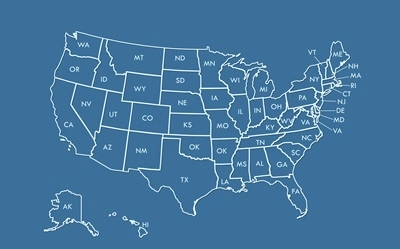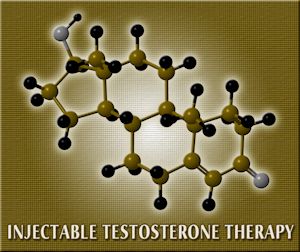Introduction
Late-onset hypogonadism (LOH), also known as age-related low testosterone, is a clinical and biochemical syndrome associated with advancing age and characterized by symptoms such as reduced libido, erectile dysfunction, decreased muscle mass, increased body fat, and fatigue. Recent studies have begun to explore the connection between LOH and mental health, particularly the prevalence of anxiety and depression among American males. This article delves into the findings of a comprehensive study on this topic, shedding light on the psychological impacts of LOH and the importance of addressing both the physical and mental health needs of affected individuals.
Prevalence of Late-Onset Hypogonadism
Late-onset hypogonadism is increasingly recognized as a significant health concern among aging men. It is estimated that approximately 20% of men over the age of 60 and up to 30% of men over the age of 70 may experience symptoms of LOH. The condition is often underdiagnosed and undertreated, partly due to a lack of awareness and the gradual onset of symptoms, which can be mistakenly attributed to the normal aging process.
Mental Health Implications: Anxiety and Depression
The study focused on the prevalence of anxiety and depression among American males with LOH, revealing a concerning correlation. It was found that men with LOH are at a significantly higher risk of developing anxiety and depression compared to their counterparts with normal testosterone levels. The data indicated that approximately 25% of men with LOH reported symptoms of depression, while 18% experienced symptoms of anxiety. These figures are notably higher than the general prevalence rates of these conditions in the broader male population.
Biological Mechanisms Linking LOH and Mental Health
Several biological mechanisms may explain the link between LOH and increased risk of anxiety and depression. Testosterone plays a crucial role in regulating mood and cognitive function. Low levels of testosterone can lead to alterations in neurotransmitter systems, including serotonin and dopamine, which are closely linked to mood regulation. Additionally, the physical symptoms of LOH, such as fatigue and reduced energy levels, can contribute to feelings of lethargy and hopelessness, further exacerbating mental health issues.
Impact on Quality of Life
The psychological impact of LOH extends beyond the immediate symptoms of anxiety and depression. Men with LOH often report a diminished quality of life, characterized by reduced satisfaction with personal relationships, decreased work productivity, and a general sense of malaise. The study highlighted that addressing the mental health aspects of LOH is crucial for improving overall well-being and life satisfaction among affected individuals.
Treatment and Management Strategies
Effective management of LOH requires a multifaceted approach that addresses both the physical and psychological symptoms. Hormone replacement therapy (HRT) is a common treatment for LOH, aimed at restoring testosterone levels to normal ranges. However, the study emphasized that HRT alone may not be sufficient to address the mental health components of LOH. Psychological interventions, such as cognitive-behavioral therapy (CBT), and lifestyle modifications, including regular exercise and a balanced diet, are essential components of a comprehensive treatment plan.
Conclusion
The study on the prevalence of anxiety and depression in American males with late-onset hypogonadism underscores the importance of recognizing the condition as a significant public health issue. The findings highlight the need for increased awareness and screening for LOH, as well as the integration of mental health support into treatment protocols. By addressing both the physical and psychological aspects of LOH, healthcare providers can improve the quality of life and overall well-being of affected men. As research continues to evolve, it is hoped that more effective strategies for managing LOH and its associated mental health challenges will be developed, offering hope and support to the growing number of American males affected by this condition.
Contact Us Today For A Free Consultation

- Exploring Alternatives to TRT for Late-Onset Hypogonadism in American Males [Last Updated On: March 9th, 2025] [Originally Added On: March 9th, 2025]
- Nutrition's Role in Managing Late-Onset Hypogonadism in American Males [Last Updated On: March 17th, 2025] [Originally Added On: March 17th, 2025]
- Future of Late-Onset Hypogonadism Treatment: Innovations and Personalized Approaches [Last Updated On: March 17th, 2025] [Originally Added On: March 17th, 2025]
- Late-Onset Hypogonadism: Impact on Mood, Energy, and Quality of Life in American Men [Last Updated On: March 17th, 2025] [Originally Added On: March 17th, 2025]
- Genetic Insights into Late-Onset Hypogonadism in Aging American Males [Last Updated On: March 20th, 2025] [Originally Added On: March 20th, 2025]
- Late-Onset Hypogonadism: Effects on Muscle Mass and Treatment Options in American Men [Last Updated On: March 20th, 2025] [Originally Added On: March 20th, 2025]
- Late-Onset Hypogonadism: Prevalence, Economic Impact, and Management Challenges in American Men [Last Updated On: March 20th, 2025] [Originally Added On: March 20th, 2025]
- Late-Onset Hypogonadism: Symptoms, Diagnosis, and Management in American Males [Last Updated On: March 21st, 2025] [Originally Added On: March 21st, 2025]
- Preventing Complications of Late-Onset Hypogonadism in American Men: Strategies and Insights [Last Updated On: March 21st, 2025] [Originally Added On: March 21st, 2025]
- Late-Onset Hypogonadism: Impact on Fertility and Health in American Men [Last Updated On: March 22nd, 2025] [Originally Added On: March 22nd, 2025]
- Exercise as a Key Strategy for Managing Late-Onset Hypogonadism in American Males [Last Updated On: March 22nd, 2025] [Originally Added On: March 22nd, 2025]
- Late-Onset Hypogonadism: Early Detection and Management in American Males [Last Updated On: March 22nd, 2025] [Originally Added On: March 22nd, 2025]
- Hormone Replacement Therapy for Late-Onset Hypogonadism: Benefits, Risks, and Guidelines [Last Updated On: March 22nd, 2025] [Originally Added On: March 22nd, 2025]
- Understanding and Managing Late-Onset Hypogonadism in American Men Over 40 [Last Updated On: March 23rd, 2025] [Originally Added On: March 23rd, 2025]
- Managing Late-Onset Hypogonadism: Emotional Challenges and Support for American Men [Last Updated On: March 23rd, 2025] [Originally Added On: March 23rd, 2025]
- Stress Exacerbates Late-Onset Hypogonadism in American Males: Management Strategies [Last Updated On: March 23rd, 2025] [Originally Added On: March 23rd, 2025]
- Understanding Late-Onset Hypogonadism: Impacts and Management in Aging Men [Last Updated On: March 23rd, 2025] [Originally Added On: March 23rd, 2025]
- Exploring the Link Between Late-Onset Hypogonadism and Diabetes in American Males [Last Updated On: March 23rd, 2025] [Originally Added On: March 23rd, 2025]
- Late-Onset Hypogonadism: Understanding Symptoms, Impacts, and Management Strategies for American Men [Last Updated On: March 23rd, 2025] [Originally Added On: March 23rd, 2025]
- Late-Onset Hypogonadism: Impact on Sleep and Holistic Management Strategies for American Men [Last Updated On: March 23rd, 2025] [Originally Added On: March 23rd, 2025]
- Late-Onset Hypogonadism's Cognitive Impact in American Men: Awareness and Management Strategies [Last Updated On: March 24th, 2025] [Originally Added On: March 24th, 2025]
- Late-Onset Hypogonadism: Understanding TRT Benefits and Risks in American Males [Last Updated On: March 24th, 2025] [Originally Added On: March 24th, 2025]
- Understanding Late-Onset Hypogonadism: Symptoms, Impact, and Management for American Men [Last Updated On: March 24th, 2025] [Originally Added On: March 24th, 2025]
- Managing Late-Onset Hypogonadism: Symptoms, Diagnosis, and Treatment Options for American Men [Last Updated On: March 24th, 2025] [Originally Added On: March 24th, 2025]
- Dietary Strategies to Manage Late-Onset Hypogonadism in American Men [Last Updated On: March 24th, 2025] [Originally Added On: March 24th, 2025]
- Understanding Late-Onset Hypogonadism: Prevalence, Symptoms, and Management in American Men [Last Updated On: March 24th, 2025] [Originally Added On: March 24th, 2025]
- Late-Onset Hypogonadism: Symptoms, Diagnosis, and Management in American Men [Last Updated On: March 24th, 2025] [Originally Added On: March 24th, 2025]
- Late-Onset Hypogonadism: Prevalence, Risks, and Management in American Men [Last Updated On: March 24th, 2025] [Originally Added On: March 24th, 2025]
- Diagnosing Late-Onset Hypogonadism: Symptoms, Testing, and Challenges in American Men [Last Updated On: March 25th, 2025] [Originally Added On: March 25th, 2025]
- Late-Onset Hypogonadism: Overcoming Stigma and Enhancing Men's Health in America [Last Updated On: March 25th, 2025] [Originally Added On: March 25th, 2025]
- Understanding Late-Onset Hypogonadism: Symptoms, Impact, and Management for American Men [Last Updated On: March 25th, 2025] [Originally Added On: March 25th, 2025]
- Early Intervention Benefits for Late-Onset Hypogonadism in American Men [Last Updated On: March 25th, 2025] [Originally Added On: March 25th, 2025]
- Managing Late-Onset Hypogonadism: Symptoms, Diagnosis, and Treatment for American Men [Last Updated On: March 26th, 2025] [Originally Added On: March 26th, 2025]
- Late-Onset Hypogonadism in American Males: Importance of Monitoring and Management [Last Updated On: March 26th, 2025] [Originally Added On: March 26th, 2025]
- Managing Late-Onset Hypogonadism: A Multidisciplinary Approach for American Men [Last Updated On: March 26th, 2025] [Originally Added On: March 26th, 2025]
- Advocating for Better Late-Onset Hypogonadism Care: A Call to Action for American Men [Last Updated On: March 26th, 2025] [Originally Added On: March 26th, 2025]
- Late-Onset Hypogonadism: Understanding, Managing, and Maintaining Independence in American Men [Last Updated On: March 26th, 2025] [Originally Added On: March 26th, 2025]
- Advanced Technology Enhances LOH Diagnosis in American Males [Last Updated On: March 26th, 2025] [Originally Added On: March 26th, 2025]
- Managing Late-Onset Hypogonadism: Symptoms, Diagnosis, and Treatment for Aging Men [Last Updated On: March 26th, 2025] [Originally Added On: March 26th, 2025]
- Late-Onset Hypogonadism: Diagnosis, Treatments, and Lifestyle Management for American Men [Last Updated On: March 27th, 2025] [Originally Added On: March 27th, 2025]
- Understanding Late-Onset Hypogonadism: Symptoms, Diagnosis, and Treatment for American Men [Last Updated On: March 27th, 2025] [Originally Added On: March 27th, 2025]
- Late-Onset Hypogonadism: Impact on Intimate Relationships and Management Strategies [Last Updated On: March 27th, 2025] [Originally Added On: March 27th, 2025]
- Late-Onset Hypogonadism: Symptoms, Diagnosis, and Management Strategies for American Men [Last Updated On: March 27th, 2025] [Originally Added On: March 27th, 2025]
- Cultural Perceptions and Management of Late-Onset Hypogonadism in American Men [Last Updated On: March 27th, 2025] [Originally Added On: March 27th, 2025]
- Understanding Late-Onset Hypogonadism: Myths, Facts, and Management for American Men [Last Updated On: March 27th, 2025] [Originally Added On: March 27th, 2025]
- Legal Aspects of Late-Onset Hypogonadism: Diagnosis, Treatment, and Rights in the U.S. [Last Updated On: March 27th, 2025] [Originally Added On: March 27th, 2025]
- Holistic Treatment of Late-Onset Hypogonadism in American Males: A Comprehensive Approach [Last Updated On: March 27th, 2025] [Originally Added On: March 27th, 2025]
- Managing Late-Onset Hypogonadism: The Crucial Role of Mental Health Professionals [Last Updated On: March 28th, 2025] [Originally Added On: March 28th, 2025]
- Community Support Enhances Management of Late-Onset Hypogonadism in American Males [Last Updated On: March 28th, 2025] [Originally Added On: March 28th, 2025]
- Family Support Crucial for American Males with Late-Onset Hypogonadism [Last Updated On: March 28th, 2025] [Originally Added On: March 28th, 2025]
- Late-Onset Hypogonadism: Impacts and Strategies for Career Management in American Men [Last Updated On: March 28th, 2025] [Originally Added On: March 28th, 2025]
- Late-Onset Hypogonadism: Financial Implications and Management Strategies for American Men [Last Updated On: March 28th, 2025] [Originally Added On: March 28th, 2025]
- Late-Onset Hypogonadism: Impact on Self-Esteem and Treatment Options for American Men [Last Updated On: April 2nd, 2025] [Originally Added On: April 2nd, 2025]
- Peer Support Enhances Life Quality for American Males with Late-Onset Hypogonadism [Last Updated On: April 2nd, 2025] [Originally Added On: April 2nd, 2025]
- Managing Late-Onset Hypogonadism: Lifestyle Strategies for American Men's Health [Last Updated On: April 2nd, 2025] [Originally Added On: April 2nd, 2025]
- Navigating Insurance Coverage for Late-Onset Hypogonadism: Diagnosis and Treatment Options [Last Updated On: April 3rd, 2025] [Originally Added On: April 3rd, 2025]
- Understanding Late-Onset Hypogonadism: Symptoms, Treatment, and Lifestyle Management for American Males [Last Updated On: April 6th, 2025] [Originally Added On: April 6th, 2025]
- Research Advances in Late-Onset Hypogonadism: Diagnosis, Treatment, and Lifestyle Impact [Last Updated On: April 8th, 2025] [Originally Added On: April 8th, 2025]
- Late-Onset Hypogonadism: Symptoms, Social Impact, and Management in American Men [Last Updated On: April 8th, 2025] [Originally Added On: April 8th, 2025]
- Late-Onset Hypogonadism: Symptoms, Diagnosis, and Management in American Males [Last Updated On: April 9th, 2025] [Originally Added On: April 9th, 2025]
- Managing Late-Onset Hypogonadism: Strategies for Mental Health in American Men [Last Updated On: April 9th, 2025] [Originally Added On: April 9th, 2025]
- Managing Late-Onset Hypogonadism: Stress, Nutrition, and Holistic Approaches for American Men [Last Updated On: April 10th, 2025] [Originally Added On: April 10th, 2025]
- Late-Onset Hypogonadism in American Men: Advocacy and Personalized Care [Last Updated On: April 10th, 2025] [Originally Added On: April 10th, 2025]
- Nutritionists' Role in Managing Late-Onset Hypogonadism in American Males [Last Updated On: April 10th, 2025] [Originally Added On: April 10th, 2025]
- Exercise Strategies to Combat Late-Onset Hypogonadism in American Men [Last Updated On: April 11th, 2025] [Originally Added On: April 11th, 2025]
- Late-Onset Hypogonadism: Prevalence, Impact, and Management in American Men [Last Updated On: April 12th, 2025] [Originally Added On: April 12th, 2025]
- Managing Late-Onset Hypogonadism: Symptoms, Diagnosis, and Treatment for American Men [Last Updated On: April 12th, 2025] [Originally Added On: April 12th, 2025]
- Late-Onset Hypogonadism: Understanding and Managing Emotional Impacts in Men Over 40 [Last Updated On: April 14th, 2025] [Originally Added On: April 14th, 2025]
- Endocrinologists' Vital Role in Managing Late-Onset Hypogonadism in Aging American Males [Last Updated On: April 14th, 2025] [Originally Added On: April 14th, 2025]
- Late-Onset Hypogonadism in American Men: Diagnosis, Treatment, and Management Strategies [Last Updated On: April 16th, 2025] [Originally Added On: April 16th, 2025]
- Managing Late-Onset Hypogonadism: Lifestyle and Medical Interventions for American Men [Last Updated On: April 16th, 2025] [Originally Added On: April 16th, 2025]
- Late-Onset Hypogonadism in American Males: Symptoms, Diagnosis, and Comprehensive Care Strategies [Last Updated On: April 17th, 2025] [Originally Added On: April 17th, 2025]
- Holistic Management Strategies for Late-Onset Hypogonadism in American Men [Last Updated On: April 17th, 2025] [Originally Added On: April 17th, 2025]
- Managing Late-Onset Hypogonadism: Impact and Strategies for American Men's Sexual Health [Last Updated On: April 18th, 2025] [Originally Added On: April 18th, 2025]
- Late-Onset Hypogonadism: Impact, Research, and Future Directions in American Men's Health [Last Updated On: April 18th, 2025] [Originally Added On: April 18th, 2025]
- Managing Late-Onset Hypogonadism: Community Resources and Support for American Men [Last Updated On: April 19th, 2025] [Originally Added On: April 19th, 2025]
- Late-Onset Hypogonadism: Impact on American Men's Professional Lives and Management Strategies [Last Updated On: April 19th, 2025] [Originally Added On: April 19th, 2025]
- Therapists' Vital Role in Managing Late-Onset Hypogonadism in American Males [Last Updated On: April 19th, 2025] [Originally Added On: April 19th, 2025]
- Late-Onset Hypogonadism: Symptoms, Diagnosis, and Management in American Men [Last Updated On: April 21st, 2025] [Originally Added On: April 21st, 2025]
- Late-Onset Hypogonadism: Impacts and Management in Aging American Men [Last Updated On: April 22nd, 2025] [Originally Added On: April 22nd, 2025]
Word Count: 604




















